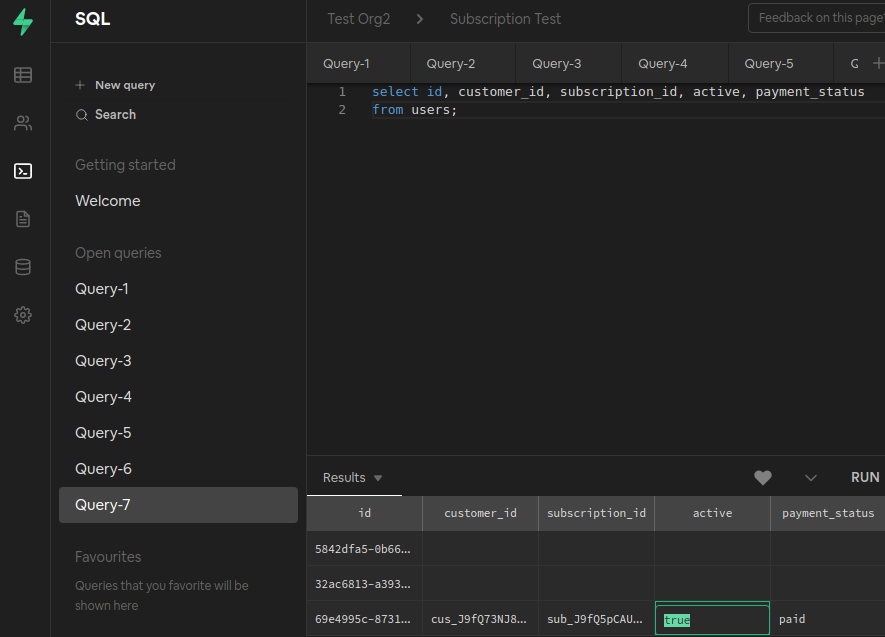Did some digging into setting up webhooks with stripe.
When Stripe sends the checkout.session.completed event, it passes along the metadata.userId that was attached when the checkout was created. That is the link back to user’s record in supabase. We use it to locate the user and mark their payment_status to paid. We also save the customer_id and subscription_id, just in case we need them in the future.
It’s really cool that we can define this logic once in svelte-kit and deploy it either as a serverless function or as a dedicated backend server without any editing.
Code
// in src/routes/webhooks/stripe.js
import Stripe from 'stripe'
import { createClient } from '@supabase/supabase-js'
const {env} = process
// construct stripe and supabase object
const stripe = new Stripe(env.STRIPE_PRIVATE_KEY)
const supabase = createClient(env.SUPABASE_URL, env.SUPABASE_PRIVATE_KEY)
// handle POST /webhooks/stripe
export async function post(req) {
let data
let eventType
const webhookSecret = env.STRIPE_WEBHOOK_SECRET
// verify the signature when possible
if (webhookSecret) {
let signature = req.headers["stripe-signature"]
let event
try {
// query stripe to get event using signature
event = stripe.webhooks.constructEvent(
req.rawBody,
signature,
webhookSecret
)
} catch (err) {
console.log(`⚠️ Webhook signature verification failed.`)
return { status: 400 }
}
// extract data from query result
data = event.data
eventType = event.type
} else {
// fallback to extracting from payload
data = req.body.data
eventType = req.body.type
}
const { object } = data
// handle different cases
switch (eventType) {
case 'checkout.session.completed':
// subscription creation was successful, so provision:
await updateUser('id', object.metadata.userId, {
customer_id: object.customer,
subscription_id: object.subscription,
active: true,
payment_status: 'paid'
})
break
case 'invoice.paid':
// recent invoice was paid, keep user active
await updateUser('customer_id', object.customer_id, {active: true, payment_status: 'paid'})
break
case 'invoice.payment_failed':
// a payment failed, mark the user as having a failed payment
// that way we can notify them in the UI
await updateUser('customer_id', object.customer_id, {payment_status: 'failed'})
break
}
return {
status: 200,
body: { message: 'ok' }
}
}
// helper to update use in supabase
function updateUser(keyName, key, updates) {
return supabase
.from('users')
.update(updates)
.match({[keyName]: key})
}Demo
